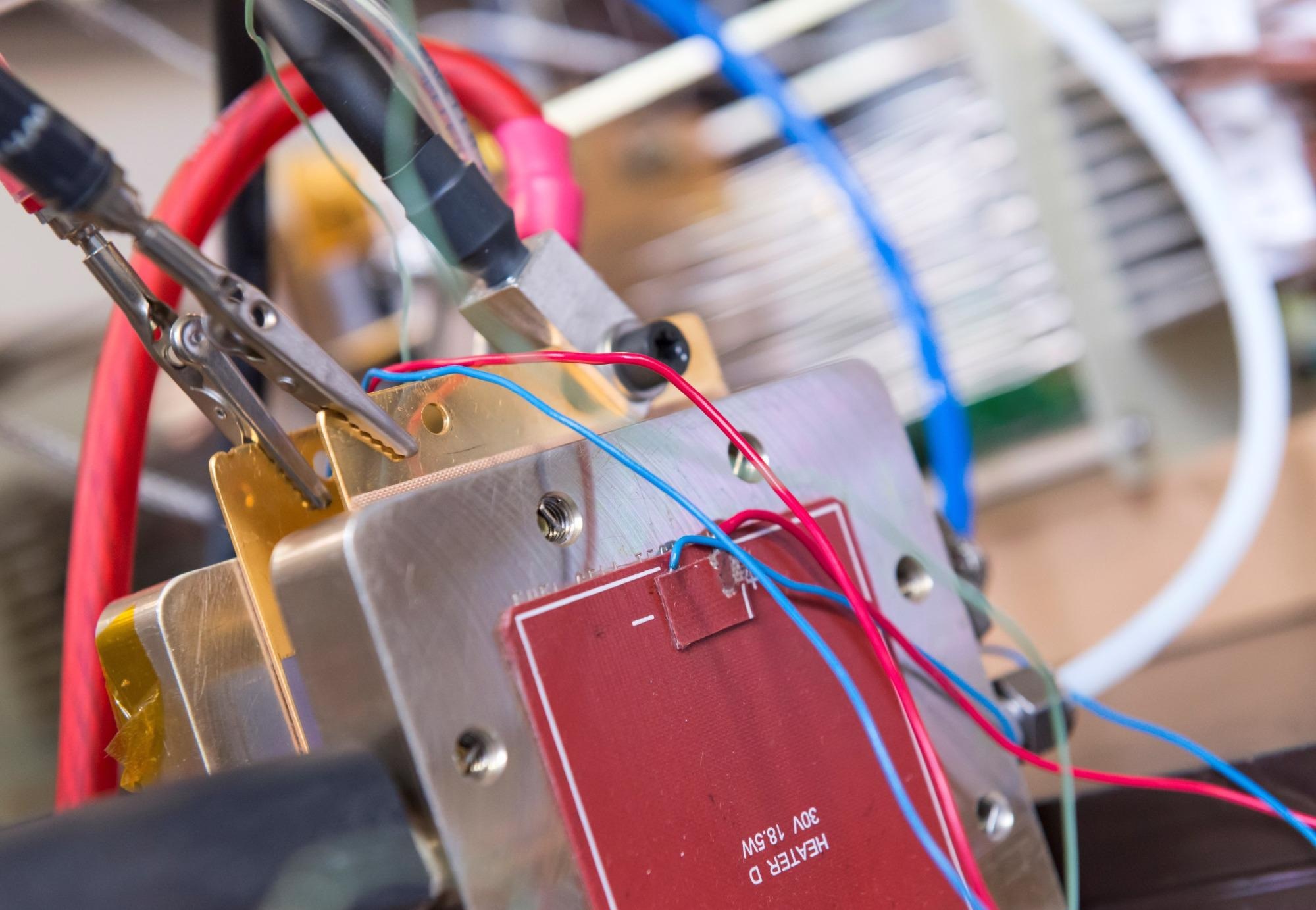Scientists at Imperial College London have engineered a hydrogen fuel cell that utilizes iron rather than rare and expensive platinum, allowing better application of the technology.

Image Credit: Imperial College London
Hydrogen fuel cells transform hydrogen into electricity with water vapor being the sole by-product, rendering them an appealing green substitute for portable power sources, especially for vehicles.
Nevertheless, their extensive use has been hindered partly by the cost of one of the main parts. To enable the reaction that generates the electricity, the fuel cells depend on a catalyst composed of platinum, which is costly and rare.
Currently, a European team directed by scientists at Imperial College London has developed a catalyst using just iron, nitrogen and carbon — materials that are inexpensive and easily available — and shown that it can be used to operate a fuel cell at high power. Their outcomes are reported in the journal Nature Catalysis.
Currently, around 60% of the cost of a single fuel cell is the platinum for the catalyst. To make fuel cells a real viable alternative to fossil-fuel-powered vehicles, for example, we need to bring that cost down. Our cheaper catalyst design should make this a reality, and allow deployment of significantly more renewable energy systems that use hydrogen as fuel, ultimately reducing greenhouse gas emissions and putting the world on a path to net-zero emissions.
Professor Anthony Kucernak, Lead Researcher, Department of Chemistry, Imperial College London
An Iron Boost
The team’s innovative goal was to create a catalyst where all the iron was spread as single atoms inside an electrically conducting carbon matrix. Single-atom iron possesses diverse chemical properties than bulk iron, where all the atoms are crowded together, making it additionally reactive.
These properties will enable the iron to boost the reactions desirable in the fuel cell, serving as a good alternative for platinum. In laboratory trials, the researchers demonstrated that a single-atom iron catalyst has a performance close to that of platinum-centered catalysts in an actual fuel cell system.
Besides creating an inexpensive catalyst for fuel cells, the technique the researchers formulated could be adjusted for other catalysts in other processes, for example, chemical reactions utilizing atmospheric oxygen as a reactant rather than costly chemical oxidants, and in the wastewater treatment using air to eliminate harmful pollutants.
Unique Synthetic Method
We have developed a new approach to make a range of ‘single atom’ catalysts that offer an opportunity to allow a range of new chemical and electrochemical processes. Specifically, we used a unique synthetic method, called transmetallation, to avoid forming iron clusters during synthesis. This process should be beneficial to other scientists looking to prepare a similar type of catalyst.
Dr. Asad Mehmood, Study First Author, Department of Chemistry, Imperial College London
The researchers worked together with UK fuel cell catalyst producer Johnson Matthey to test the catalyst in suitable systems and hope to expand their new catalyst so it can be employed in commercial fuel cells. For the time being, they are aiming to enhance the stability of the catalyst, so that it equals platinum in both durability and performance.
Journal Reference:
Mehmood, A., et al. (2022) High loading of single atomic iron sites in Fe–NC oxygen reduction catalysts for proton exchange membrane fuel cells. Nature Catalysis. doi.org/10.1038/s41929-022-00772-9.